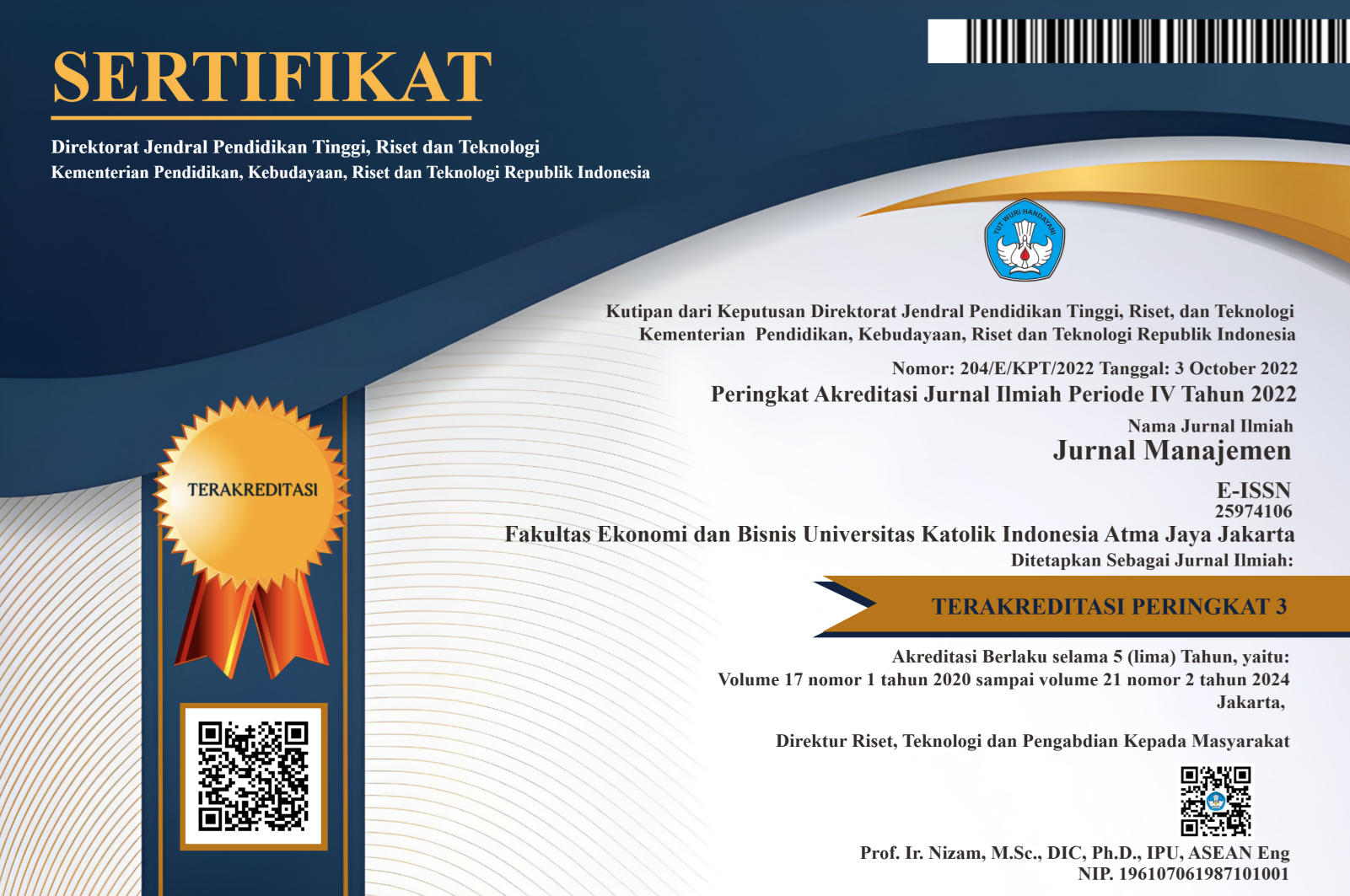PENGARUH KOMITMEN KARIR DAN MOTIVASI KARIR TERHADAP KESUKSESAN KARIR SUBJEKTIF KARYAWAN PADA PT BANK BTN BEKASI
.
DOI:
https://doi.org/10.25170/jm.v14i2.787Keywords:
commitmen career, career motivation, career successAbstract
This research was conducted in order to determine whether the effect of commitmen career and career motivation towards Subjective career success of employees Bank Tabungan Negara Tbk. Sampling method used is convenience sampling. This study took a sample of 60 employees of the State Savings Bank Tbk. Methods of data analysis used in this research is multiple regression analysis. The results of data processing using SPSS 22. The research found that career commitment and career motivation have significant effect on subjective career success.
References
P.B. Srikanth & D. Israel. (2012). Career Commitment and Career Success: Moderating Role of Career Satisfaction. The Indian Journal of Industrial Relations.
Rachel Day and Tammy D.Allen. (2002). The Relationship Between Career Motivation and Self-Eficacy with Protege Career Success, Department of Psicology, The University of Sounth Florida.
Sugiyono. (2011). Statistika untuk Penelitian. Bandung: Alfabeta.
Sumarsono. (2004). Metode Riset Sumber Daya Manusia. Yogyakarta: Graha Ilmu.
Uyanto, S. (2009). Pedoman Analisis Data dengan SPSS. Yogyakarta: Graha Ilmu.
Veithzal Rivai. (2005). Manajemen Sumber Daya Manusia untuk Perusahaan. hal, 280).
Downloads
Published
Issue
Section
License
Authors who publish with this journal agree to the following terms:
Authors retain copyright and grant the journal right of first publication with the work simultaneously licensed under a Creative Commons Attribution-NonCommercial-ShareAlike License that allows others to share the work with an acknowledgement of the work's authorship and initial publication in this journal.
Authors are able to enter into separate, additional contractual arrangements for the non-exclusive distribution of the journal's published version of the work (e.g., post it to an institutional repository or publish it in a book), with an acknowledgement of its initial publication in this journal.
Authors are permitted and encouraged to post their work online (e.g., in institutional repositories or on their website) prior to and during the submission process, as it can lead to productive exchanges, as well as earlier and greater citation of published work (See the Effect of Open Access).












